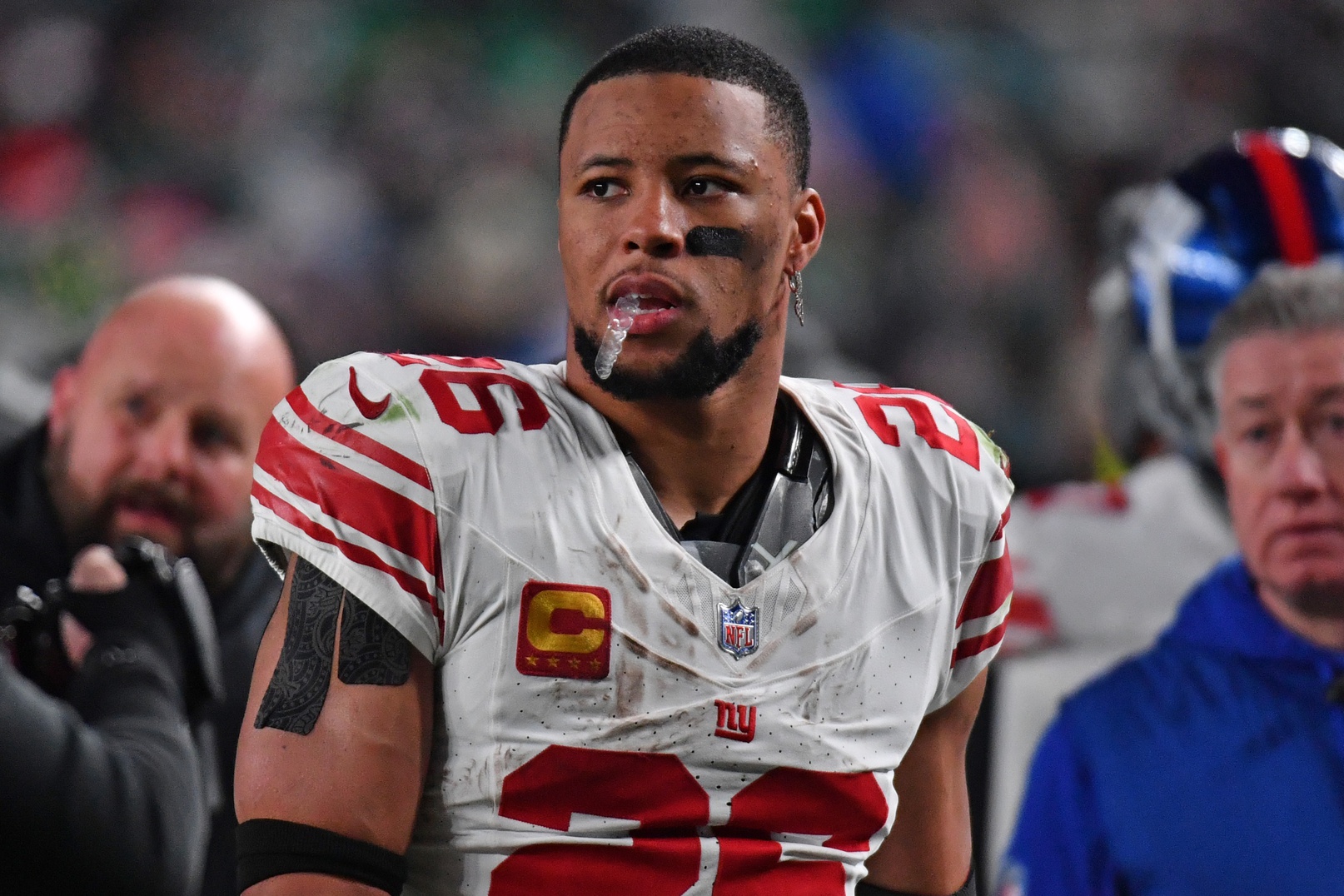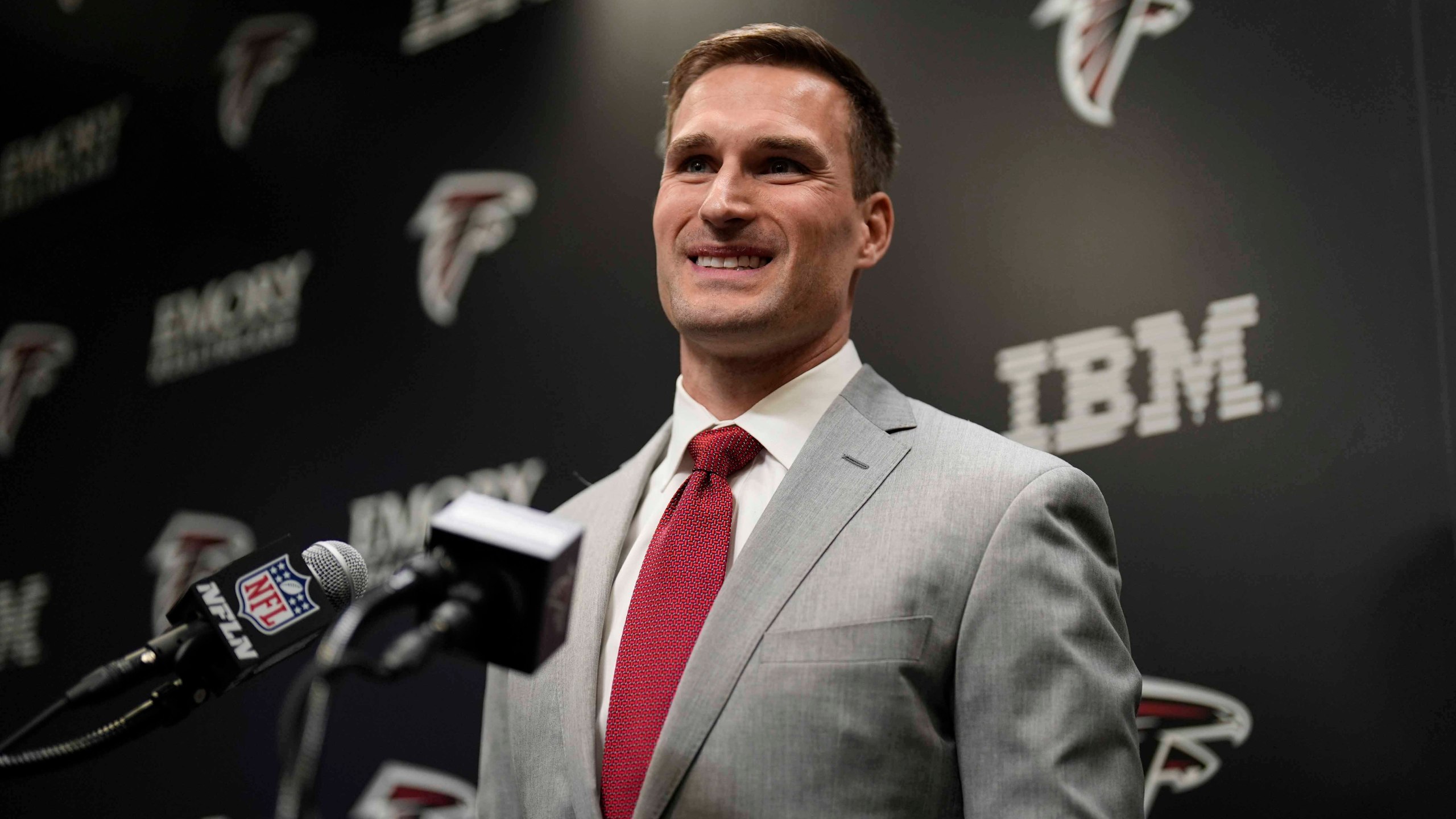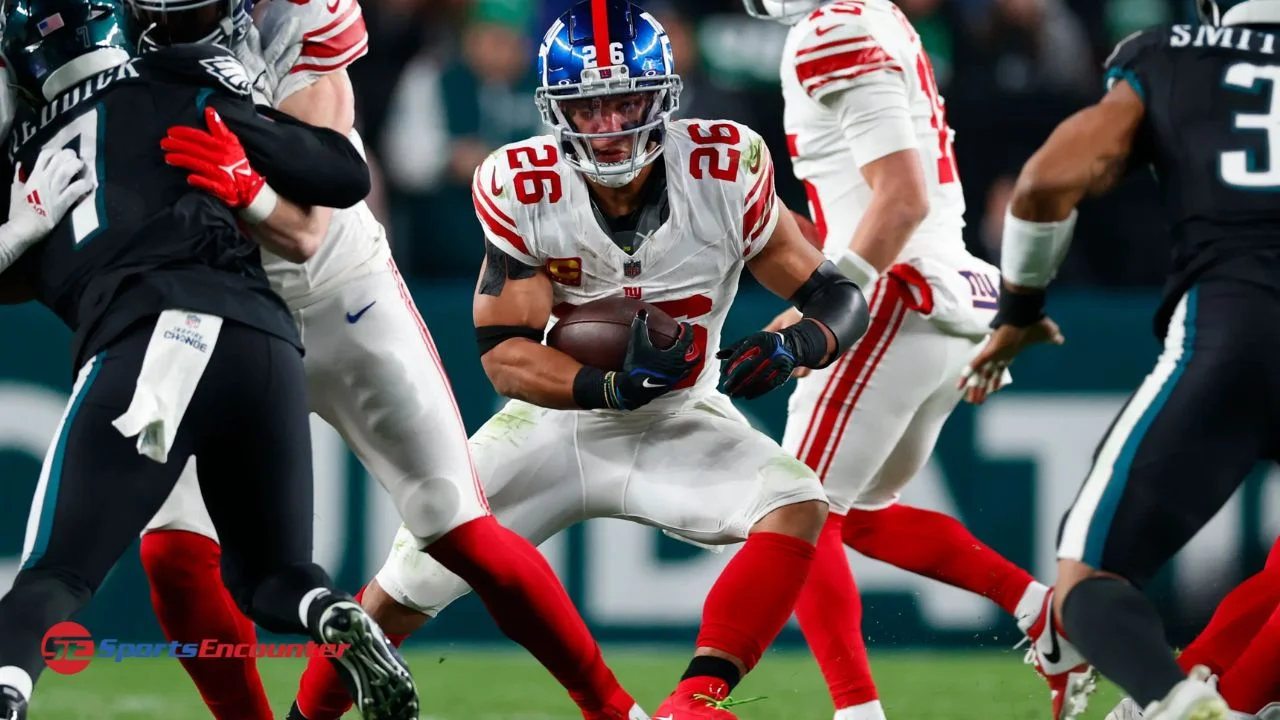The landscape of the NFL is rife with strategic moves and high-stakes negotiations, particularly during the free agency period. Recently, the Atlanta Falcons’ acquisition of Kirk Cousins has thrust them into the spotlight, raising eyebrows across the league for potential tampering violations.
This incident, alongside the Philadelphia Eagles’ own tampering allegations concerning Saquon Barkley, could have significant repercussions, shining a light on the league’s stringent tampering policies designed to ensure fair play and competitive balance.

The Fine Line of NFL Tampering Policies
Tampering, in the realm of the NFL, refers to the forbidden dialogue or interaction between a team and a player under contract with another team, outside permitted times. This policy aims to protect the rights of clubs and maintain the integrity of the league’s competitive balance. Specifically, the rule permits franchises to communicate with a player’s agent during a designated two-day period before the start of free agency, a critical window that prevents any premature negotiations.
Despite these clear guidelines, the Atlanta Falcons find themselves scrutinized for possibly breaching this protocol in their deal with Kirk Cousins. Cousins, in a press conference, hinted at meetings with franchises prior to the sanctioned period, a revelation that prompted immediate investigation. Moreover, Cousins’ connection with Kyle Pitts of the Falcons adds another layer of complexity, suggesting potential indirect contacts that could further complicate the team’s situation.
🚨🚨BREAKING: The NFL’s investigation into Kirk Cousins and the #Falcons over tampering allegations has revealed much more than everyone originally thought.
It’s been revealed that Cousins and Atalanta have had ongoing conversations since WEEK 12 of last season. 🤯🤯🤯
Atlanta… pic.twitter.com/jQeGa4VnHx
— NFC North News (@NFCNorthNewss) March 19, 2024
Eagles in the Spotlight: The Barkley Controversy
Parallel to the Falcons’ woes, the Philadelphia Eagles face scrutiny over their acquisition of Saquon Barkley from the New York Giants. Allegations of tampering surfaced when Penn State’s manager, James Franklin, insinuated a pre-contractual dialogue between Barkley and Eagles’ general manager, Howie Roseman. Barkley and the Eagles have since refuted these claims, attributing any discussions to a misunderstanding conveyed through Barkley’s agent.
Potential Consequences and Historical Precedents
The implications of being found guilty of tampering are severe. Fines and the forfeiture of draft picks are among the penalties, serving as a deterrent against any breach of the policy. The Kansas City Chiefs and Miami Dolphins’ past infringements, resulting in significant fines and lost draft capital, underscore the NFL’s commitment to enforcing these rules rigorously.

The ongoing investigations into the Falcons and Eagles not only highlight the challenges teams face in navigating the legal complexities of NFL free agency but also serve as a reminder of the high stakes involved in building a championship-caliber team. As the league continues to uphold its tampering policies, the outcome of these cases will undoubtedly have a lasting impact on the future conduct of all NFL franchises.
In conclusion, the NFL’s tampering rules are designed to preserve the competitive integrity and fairness among its teams. As the investigations unfold, the Falcons and Eagles find themselves in a precarious position, facing potential penalties that could affect their prospects for the coming seasons. The saga of Cousins and Barkley exemplifies the intricate dance of NFL negotiations, where the line between strategic planning and rule violation is both fine and fiercely guarded.

